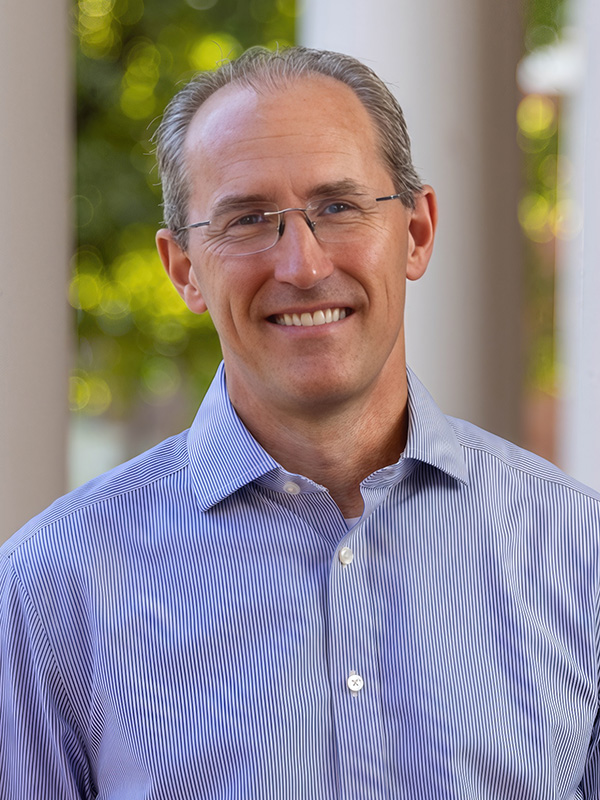Breadcrumb
"Live Longer, Live Stronger: The Science of Muscle and Bone Health in Aging"
 | Speaker: Brian Clark, Ph.D. Date: February 24, 2026, noon-1 p.m. Location: |
 Register Here
Register Here
60-Second Preview
Description
Recent data suggest that:
- Curing heart disease might extend average healthspan by three years and lifespan by five years.
- Curing both heart disease and cancer might double these gains.
- However, slowing biological aging could extend healthspan and lifespan up to three decades.
Brian Clark, a professor of physiology at Ohio University, is driven by the idea that targeting aging itself could have a greater impact than curing any single disease. Working at the forefront of aging research, he aims to understand and intervene in the biological processes that underlie age-related physical decline.
Clark’s work centers on the concept of “healthspan,” the period of time in which we can live independently and maintain a high quality of life. His work focuses on maintaining the strength, function, and vitality of those years by uncovering the mechanisms that drive age-related muscle loss, skeletal weakness, and neurological deterioration. “Ultimately, my goal with all of these approaches is to keep people out of the nursing home,” explains Clark.
With an approach that examines both the neuromuscular and skeletal systems, Clark's research reveals that age-related weakness is not just a muscular problem. It’s also a neurological one, rooted in how effectively nerves communicate with muscles. By integrating these two essential aspects of physical health, his work offers a more complete picture of what it means to age well and remain independent.
To Clark, one of the most intriguing aspects of aging is its variability. “You can have an 80-year-old at the biological age of a 70-year-old, or you could have a 70-year-old at the biological age of an 80-year-old,” Clark says. To better understand this diversity in the aging process, his research extends beyond physiology to the development of diagnostic tools to reveal the invisible aspects of aging.
For instance, recognizing that traditional bone-density scans fail to capture the full picture of skeletal health, Clark and his collaborators developed a new vibration-based technology that measures bone stiffness and strength more directly. This innovation—commercialized by medical startup OsteoDx—gives clinicians a much clearer understanding of skeletal health and fracture risk. By refining these diagnostic tools, Clark hopes to detect weaknesses earlier and enable interventions before independence is lost.
About the Speaker
Brian Clark obtained both his M.S. and PhD from Syracuse University and has since become an internationally prominent scientist whose research examines the effects of exercise, drugs and nonsurgical medical interventions on the human body. The overarching goal of his work is finding ways to remedy the weakness and restriction of movement that come with aging and physical disability – an issue of obvious relevance to health care costs and quality of life given America’s aging demographic.
Clark’s many research projects look at topics including the mechanisms and effectiveness of spinal manipulative therapies for low back pain; the neural mechanisms of muscle weakness associated with aging; and the safety and effectiveness of new compounds for enhancing muscle function in the elderly.
Clark has published over 160 journal articles and chapters in outlets such as the Journal of Neurophysiology, Journal of Applied Physiology, Neurobiology of Aging, Journal of Gerontology: Medical Sciences, and Experimental Gerontology, and his work and expertise has been featured in a number of major media outlets. He is author of a chapter in Hazzard’s Geriatric Medicine and Gerontology, Seventh Edition, described by publisher McGraw Hill as “the gold-standard text on the diagnosis and treatment of disorders affecting the elderly.”
About the Discovery Series
The NextGen Precision Health Discovery Series provides learning opportunities for UM System faculty and staff across disciplines, the statewide community and our other partners to learn about the scope of precision health research and identify potential collaborative opportunities. The series consists of monthly lectures geared toward a broad multidisciplinary audience so all can participate and appreciate the spectrum of precision health efforts.
For questions about this event or any others in the Discovery Series, please reach out to Mackenzie Lynch.